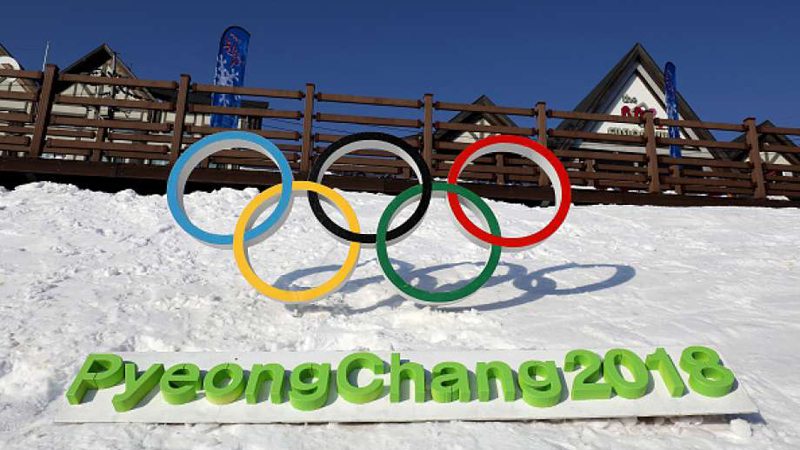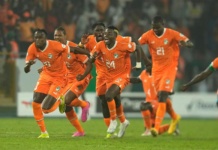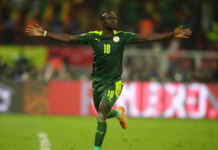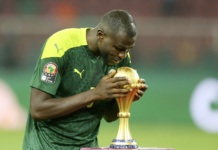Despite the Pyeongchang games hosting the largest ever number of African nations at a single Winter Olympics event with eight African nations participating, the race to become the first African to win a medal at the Winter Olympics will have to wait until the next games in Beijing in 2022.

While they did not make history as the first Africans to win a medal at the event, many African athletes made history nonetheless. From Kenya’s Sabrina Simader, Madagascar’s Mialitiana Clerc, Ghana’s Akwasi Frimpong, South Africa’s sole competitor Alpine ski racer, Connor Wilson, Nigeria’s first female skeleton athlete Simidele Adeagbo, Samir Azzimani of Morocco and Togo’s Alessia Afi Dipo, the continent was well represented.
Nigeria’s ambassadors to the just concluded 2018 Winter Olympic Games in Pyeonchang, South Korea, have arrived back to the country.
The quartet of Seun Adigun, Ngozi Onwumere, Omeoga Akuoma and Simidele Adeagbo arrived on Tuesday night and as expected were treated to a rousing welcome.
Many enthusiastic fans on Tuesday night patiently waited for the arrival of the country’s latest set of heroines who not only did Nigeria proud but the continent.
The quartet, who made history as the first African women to compete in Bobsled and Skeleton events at the Winter Olympics, arrived Lagos courtesy of sponsor, KLM Airlines.
Despite not winning any medal, interestingly, they all achieved personal bests at the Olympics to set the stage for more Nigerians to embrace Winter Olympics, in the years ahead.
Adeagbo recorded a personal best of 53:73 seconds in Skeleton, while the Bobsled duo of Adigun and Akuoma reached their personal best of 52.21 seconds.
South Africa’s Connor Wilson is back at his United States base and already looking ahead.
Twenty-one-year-old Wilson failed to finish either of his two events, the giant slalom and the slalom in his debut Winter Olympics in PyeongChang, South Korea.
And he says the fact that he crashed in the giant slalom event last Thursday impacted on his Games.
‘Yes, there was certainly pressure after my DNF in the giant slalom,’ he told Team SA. ‘I was expecting to finish reasonably in the slalom as it is my stronger event and I’m able to train slalom more often.
‘I was actually halfway down the run when I noticed a gate missing, which threw me off slightly. I lost focus for a second and crashed out of the course. When I noticed that I was able to get back into the course, I quickly hiked back up to where I had skied out.
‘Once back in the course, I only made it two more gates before straddling a gate (getting the gate between my legs), which caused my ski to come off and me to crash.
‘All I remember was my ski coming off and face planting into the slope. When I finally came to a stop, I just remember feeling pain in my hip, but luckily I was later told in the emergency room that nothing was broken.’
Reflecting on PyeongChang, he’s still hugely grateful for the experience. ‘I’ve never skied in a competition as difficult as the Olympics. It was an experience I learned a lot from and will remember for the rest of my life. I now know what it takes to compete successfully in the Olympics and I’ll work as hard as I can in preparation for the next one in Beijing, Japan in 2022.’
Kindly follow us on twitter:@AfricanVoice2









